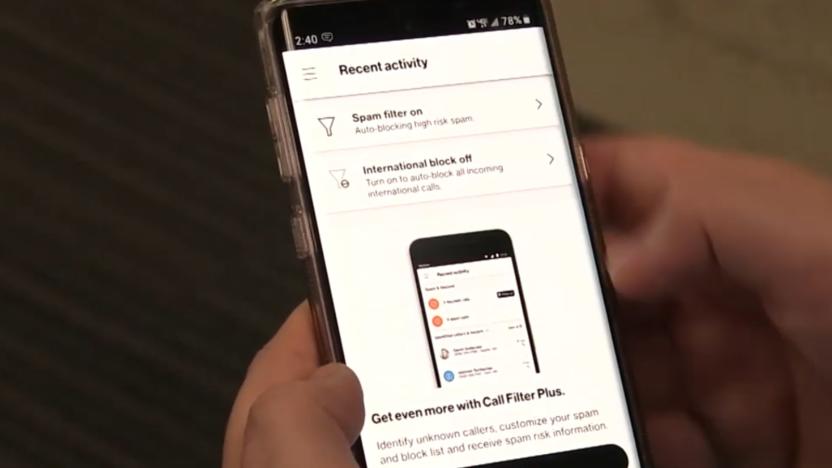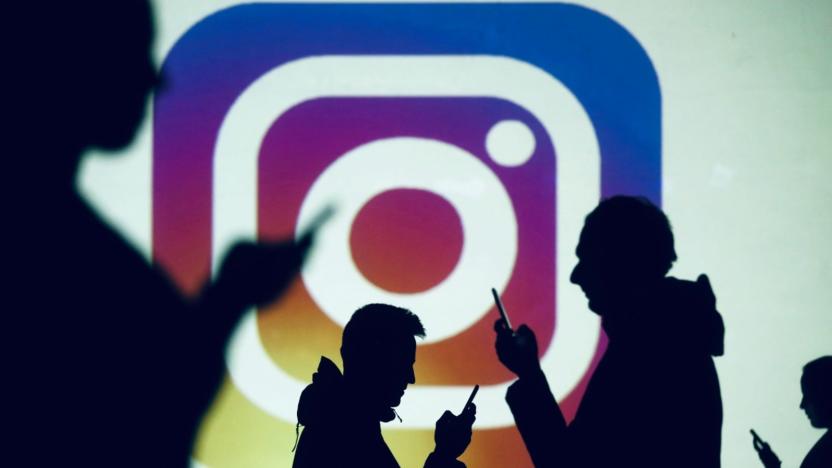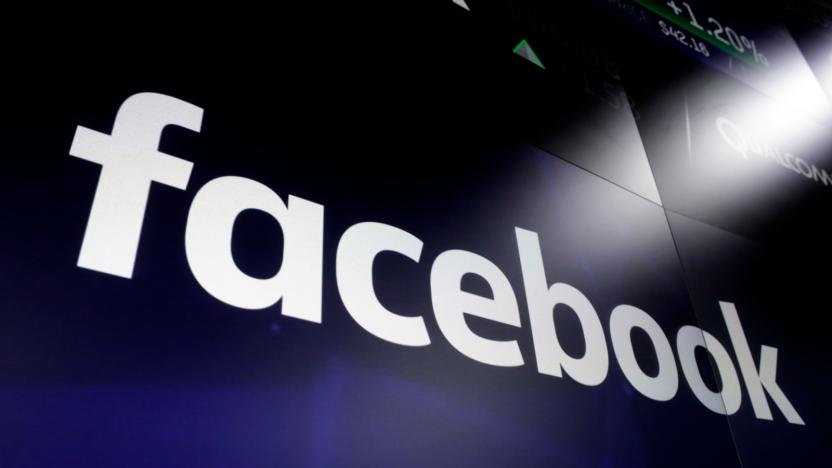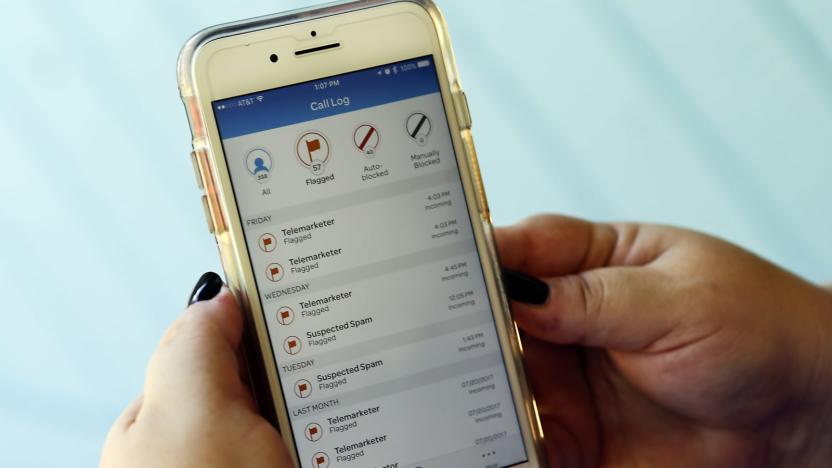spam
Latest

Twitter is cracking down on financial scams
Twitter has updated its policy on financial scams. As of today, users are not permitted to deceive others into sending money or personal financial information. If you're thinking, it's about time, you're not alone. Previously, Twitter handled cases of fraud via its spam reporting tool. But today's changes detail exactly what is prohibited and should make it easier for users to report fraud.

Did AI kill off spam and we just didn’t notice?
I was pwned online recently. My contact information was revealed to the internet by the Entertainment Software Association's leaky exhibitor portal. Luckily, confidential info like my SSN and birthdate were not spilled but I still found myself preparing for the inevitable flood of scams and spam, now that my details were out there for the world to see. But the deluge never came, only a meager handful of Nigerian princes reached my inbox with offers of long lost inheritance. So if internet nefarious scammers have my email address, why isn't my inbox filled with spam? Turns out we have AI to thank for that.

Verizon will automatically opt Android customers into its anti-robocall app
Verizon (Engadget's parent company) rolled out a free version of its spam filter earlier this year in a bid to counteract the tiresome robocalls that so often plague our lives. Now, if you're on Android, you'll get it as standard, so you don't need to do anything to avoid the nuisance.

Phone companies and state attorneys general join forces to fight robocalls
US consumers receive as many as 350,000 unwanted calls every three minutes, according to the FCC. Despite multiple efforts to end the onslaught, an estimated 4.7 billion robocalls hit American phones in July alone. Now, attorneys general from all 50 states and the District of Columbia are teaming up with 12 carriers in a united effort to prevent and block the spam calls.

Porn bots are now storming Twitter's trending topics
Instagram isn't the only social media app being invaded by porn bots. Now they're on Twitter, too. For the past few days, as I was scrolling through Twitter's trending section, I noticed a number of accounts showing similar behavior as the bots that have taken over Instagram comments. But, whereas on Instagram they're leaving messages like "We gonna ignore the fact that I've GOT A HUGE BOOTY?" or "DON'T LOOK at my STORY, if you don't want to M A S T U R B A T E !" on Twitter the spam also includes pictures of women in bikinis and a bunch of words relevant to topics currently trending on Twitter. And they're even more brazen in their attempts to lure in gullible readers, with messages like "I moan very much during sex, if this does not scare you, call me on whatsapp."

Instagram’s 'huge booty' problem keeps getting worse
There isn't a day when I don't come across comments from bots on Instagram. They're all over the place. But there's nothing they love more than to spam high-profile pages with millions of followers. Whether it's LeBron James, Kim Kardashian, ESPN or Ariana Grande, their posts are often the target of comments such as "We gonna ignore the fact that I've GOT A HUGE BOOTY?" or "DON'T LOOK at my STORY, if you don't want to M A S T U R B A T E !" Behind these, are fake accounts featuring pictures and videos of naked and half-naked women, whose primary goal is to get people to sign up for shady porn sites. This has become a serious problem for Instagram, one that seems to be getting worse by the day and that the company needs to get a handle on, before it gets more out of control.

Democratic hopeful Tulsi Gabbard sues Google over alleged censorship
Tulsi Gabbard, one of the many Democratic presidential hopefuls, is suing Google for at least $50 million. Gabbard filed a federal lawsuit against the company today, claiming that it suspended her campaign's advertising account for six hours following the first Democratic debate. Doing so, the lawsuit reportedly states, infringed on Gabbard's free speech.

FTC crackdown targets operations responsible for one billion robocalls
The Federal Trade Commission (FTC) and its law enforcement partners are cracking down on robocallers. Today, the FTC announced that it's filed 94 actions against organizations responsible for more than one billion illegal calls. As part of "Operation Call it Quits," the FTC has opened four new legal cases and three new settlements, bringing the number of cases the FTC has filed against robocallers to 145.

FCC empowers carriers to block robocalls by default
The FCC's quest to kill robocalls is moving forward. The regulator has voted for a ruling that explicitly lets phone carriers block robocalls by default. They'll have to use "reasonable" call data to make the decision, inform customers of the practice and provide an opportunity to opt out. The decision also makes clear that networks can offer opt-in tools for blocking any number that isn't on a whitelist, such as the subscriber's contacts.

FCC proposes blocking robocalls by default
The Federal Communications Commission (FCC) has been fighting robocalls for years, but as anyone with a cell phone can tell you, they're still getting through. Now, the Commission wants to make it legal for phone companies to block unwanted robocalls by default. Chairman Ajit Pai has circulated a declaratory ruling that, if adopted, would give carriers permission to develop new call blocking tools. The ruling could also allow consumers to prohibit calls from numbers that aren't on their contact lists.

Twitter suspensions for promoting terrorism drop yet again
Twitter has released its latest transparency report, covering July-December 2018. During that time, it suspended 166,513 accounts for promoting terrorism. It said 91 percent of them were identified by internal systems, and the figure is 19 percent lower than in the previous six months. The company suggested there's a steady decrease in terrorist groups trying to use the platform, party due to its "zero-tolerance policy enforcement." It noted that, in most cases, it takes action against these accounts while people are setting them up and before they ever post a tweet.

Bots have invaded Instagram comments
The last thing I expected to find on Instagram was someone telling me not to look at their Story if I didn't want to masturbate. But that comment, which I can only assume was intended reverse psychology, wasn't just directed at me. It was left on a post from Sky Sports and, thanks to the thousands of likes garnered by the comment, it was the first thing the account's 2.7 million followers would see when they looked at the comments on that picture. There are similar comments all over Instagram, particularly on high-profile pages with millions of followers. And they have one thing in common: They're spam profiles with pictures and videos of naked and half-naked women, which were created to get you to look at their accounts and then have you sign up for shady pornographic sites.

Twitter limits daily follows to combat spammers
In an apparent attempt to combat spam and bot accounts that populate its platform, Twitter announced today that it is changing its rules to allow users to follow up to 400 accounts per day. The change marks a considerable drop from the previous cap, which allowed up to 1,000 follows in a single day, though still allows for more following than the average human user is likely to do in a 24 hour period.

Facebook removes over 1,000 pages ahead of India's election
Facebook announced today that it has removed 1,126 Pages, groups and accounts ahead of India's general election. Most of the accounts, which were based in India and Pakistan, were flagged for "coordinated inauthentic behavior." In total, Facebook removed 702 Pages, groups and accounts linked with two networks in India. Another 103 Pages, groups and accounts (across Facebook and Instagram) were deleted in connection with a network in Pakistan, and 321 Facebook Pages and accounts in India were removed for violating the company's rules against spam.

Facebook pulls 2,632 bogus accounts and pages in latest crackdown
Facebook's war against shady accounts isn't about to slow down. The social site has pulled 2,632 accounts, groups and accounts for conducting "coordinated inauthentic behavior" across Facebook and Instagram. The perpetrators were linked to Russia, Iran, Macedonia and Kosovo, although Facebook stressed that it didn't find connections between each activity besides similar tactics.

T-Mobile starts verifying callers to fight spam
More US carriers are taking steps to prevent junk calls from reaching your phone. T-Mobile has launched a Caller Verified system that uses new standards (SHAKEN and STIR) to fight caller ID spoofing and ensure the number you see is real. Ideally, this makes it harder for ad spammers and tech support scammers to dodge screening efforts and blacklist apps.

Android's stock texting app now includes anti-spam safeguards
Your Android phone's text messages could soon be relatively junk-free without needing help from carriers. Android Police has learned that Google is rolling out spam protection to the Messages app for at least some users. It's not clear just what the feature looks for, but Google is clearly aware of the potential privacy issues. While the company does have to transmit some message-related data to Google, it doesn't send any of the content itself.

YouTube removed 58 million videos last quarter for violating policies
YouTube has been publishing quarterly reports that detail how many videos it removes for policy violations and in its most recent report, YouTube has also included additional data regarding channel and comment removals. Between July and September, the company took down 7.8 million videos, nearly 1.7 million channels and over 224 million comments, and YouTube noted that machine learning continues to play a major role in that effort. "We've always used a mix of human reviewers and technology to address violative content on our platform, and in 2017 we started applying more advanced machine learning technology to flag content for review by our teams," the company said. "This combination of smart detection technology and highly-trained human reviewers has enabled us to consistently enforce our policies with increasing speed."

FCC will allow carriers to block spam text messages
The FCC has rubber-stamped wireless carriers' ongoing efforts to block spam text messages. The regulator voted in favor of a ruling that labels SMS and MMS as information services under the Communications Act, giving telecoms permission to block unwanted messages. It simultaneously rejected bids from "mass-texting companies" and others to label text messaging as telecommunications services that would be subject to common carrier rules and potentially harder to block. On the surface, it's ideal -- carriers can continue to block spam texts en masse and fight spoofing attempts.

FCC proposal would limit robocalls to reassigned phone numbers
FCC Chairman Ajit Pai is continuing his seemingly relentless quest to rid the US of robocalls. The regulator has proposed more measures that would fight spam calls and texts, particularly people with reassigned numbers. The first proposal would create a database of reassigned numbers that would stop businesses (law-abiding businesses, at least) from calling numbers after they've been changed. You'd hopefully get fewer sales pitches intended for others.







